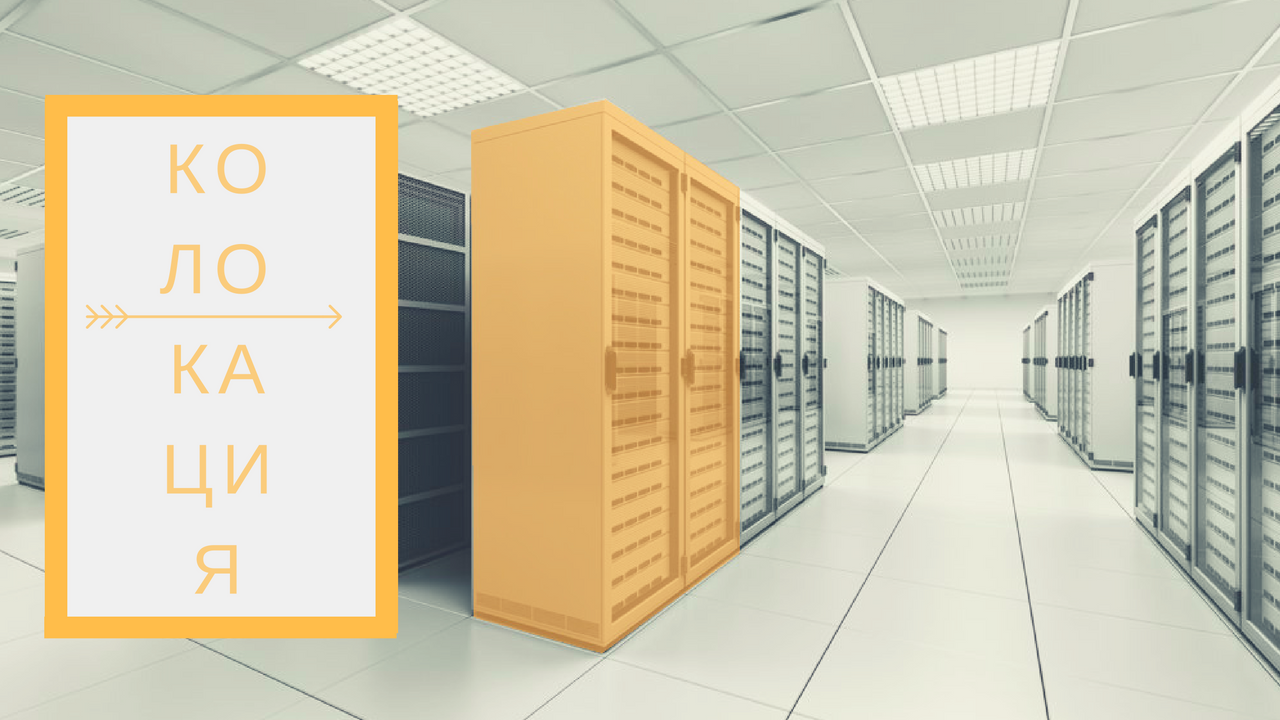Co-location: data centers vs small and medium business?

The IT community has long been talking about the imminent demise of the local server and the onset of the bright totalitarian future of cloud technologies. Why did such a mindset appear? Because local data processing centers are allegedly stuck in the past and are suitable only for large companies with large financial resources, for example, banks that are forced to build their own data centers in the territory under their control due to certain security requirements for data storage and processing.
We have already told how to make a small server room with our own hands. However, arranging and maintaining it is not always advisable, especially if there are only a few people working in the office and the utilization of computing resources rarely exceeds a third of the available capacity. And what to do if access to shared data and services should be carried out from locations separated by the city or even different cities?
One of the suitable solutions that allows you to combine some of the advantages of cloud technologies and your own server, is the colocation (from the English co-location) - placing your own server and network equipment in the data center by direct agreement or through a hosting service provider.
')
The colocation service segment is growing year by year and shows no signs of slowing down. From the April report of the company 451 Research, which annually analyzes 4800 data centers, it follows that the colocation market will cost $ 33.2 billion in 2018. In the first quarter of last year, the global colocation market brought in $ 27 billion. Most of the profits - the revenue of local providers.
So why is the colocation service so in demand in the era of cloud storage and data processing? What are the advantages for companies, especially small and medium ones?
Where did the colocation come from?
Only a serious data center can cope with the task of efficiently managing large data arrays. This luxury is available only to corporations and large companies. However, a data center often has free resources in the form of unoccupied usable space, unused electrical power and free bandwidth of communication channels. From the point of view of the business model of data centers, this is an inefficient use of resources, and the colocation service, which is to rent one standard rack space, a so-called unit, or the entire server rack, is designed to solve this problem.
On the other hand, the potential consumers of the colocation service are small and medium enterprises, for which the determining factor is the ability to receive the same benefits that were previously available only to large ones.

The colocation service allows small and medium businesses to rent a place for the safe placement of their equipment, where it will be provided with reliable power supply and cooling, as well as good bandwidth of communication channels at an affordable price. This means that access to your services will be provided 24/7 due to the fact that the data center professionally provides fault tolerance and uninterrupted operation of the entire infrastructure, on which the performance of the server and network equipment depends. In fact, this is very similar to the outsourcing of staff to maintain the IT infrastructure of a business.
Thus, you do not have to allocate resources for your server equipment, you will be insured against losses due to equipment downtime due to power failures and you can not worry about cooling and equipment safety. In addition, you can rent a high-speed dedicated channel from the data center pool if you need to establish a reliable connection with your server from different cities, as well as order backup and recovery of your data as an additional service using data center specialists. In the event that your equipment fails and it is not possible to restore its performance within a reasonable time, the data center can, by prior arrangement, quickly restore your infrastructure and data on its equipment.
All this gives small and medium-sized businesses an interesting alternative to the traditional approach in the organization of IT infrastructure, and an additional advantage of this solution is good scalability. When a company needs to respond flexibly to the needs of the market, it can always rent more or less space in the data center, or take over the computing power of the data center itself.
Favorable opportunities for both parties
Despite the fact that many medium and small companies continue to actively deploy servers in their offices, the demand for a place in the data center is ahead of supply. The collocation market is developing; this is due to the rapid development of cloud technologies, the development of electronic commerce and the Internet of things and, as a result, the competitive decline in prices for this service.
On the other hand, not every company has the desire, and sometimes the ability to build their own local server farm, this circumstance makes the collocation so profitable for data centers. John Healy, deputy director of the data center at Keysourse, says that transferring infrastructure to data centers is an easy and reliable way for companies to perform their tasks with data and at the same time save money and time.
Compromise on IT control
Using colocation companies get more control over their services compared to the public cloud. At the same time, Emma Fryer, deputy director of TechUK’s UK technology division, believes that key business processes of organizations are increasingly dependent on supporting critical IT functions. If the server infrastructure is in its territory, it can threaten business continuity and add unnecessary expenses, especially if the equipment is in hot, poorly designed server rooms and uses inappropriate communication channels.
Future of colocation
According to Saiman Francis, head of Digital Reality, colocation will play an increasing role in IT operations of a business, as digital infrastructure and technologies still tend to become more complex, and the costs of self-deployment, maintenance and development will only increase.
Of course, colocation is inferior in some moments to cloud technologies - the latter are easy to set up and easier to scale. In addition, cloud-based services and data are easier to migrate between data centers than equipment hosted on colocation terms.
At the same time, nothing prevents to combine both approaches - by placing server and network equipment through collocation, companies can place their private or hybrid cloud in close proximity to the computing nodes of public cloud service providers, which will allow the organization to connect as quickly as possible to the clouds of its partners and customers using a cross connection with extremely small time delays and without renting expensive network channels.
Companies must clearly understand where it is better for them to place a closed part of their hybrid cloud - on their territory or in a data center. And indeed it is important not only to assess the current needs for computing power, but also to take care of the sufficient supply of those for the future.
If you decide that you need a colocation
In conclusion, some tips on how to choose the co-location service in the data center.
1. Choose a data center with a good transportation infrastructure and safe location:
Good: Underground center in a large city.
Bad: Ground Center, located in the hangar in the middle of the Sahara desert, which can only be reached by camel. :)
2. Pay attention to the security level:
Good: There is video surveillance, biometric locks, the territory is under protection, attendance records are kept, there are locks on server cabinets.
Bad: There is one guard at the checkpoint with a paper logbook of visits, open server racks, homeless people walk freely in the territory. :)
3. Learn how technical support works:
Well: Works 24/7 without lunch breaks, the specialists are competent and friendly. In the event of a sudden failure of the customer’s equipment, emergency replacement of components by the efforts of the DC itself is possible.
Bad: Responds after a long break or does not respond at all, the answers carry a minimum of useful information or do not contain it at all.
4. Consider customer fame:
Good: Large and well-known companies use the data center services, there are several sites in different cities.
Bad: The services are used only by small budget organizations, which do not care where to store data, just to be cheaper.
5. Evaluate the conditions of the host:
Good: There are high-quality cooling and ventilation systems, uninterrupted electricity supply, autonomous backup power supply for a long period, stable and duplicated communication channel, protection against network attacks.
Bad: If you are offered a raw basement where there is no fire evacuation plan, and in case of a sudden shutdown of the main power source, only a UPS or low-power diesel generator is provided.
This is a basic, but far from complete, list of key points that should be addressed before you make a final decision on the choice of a specific co-location service provider. I think the comments will complement us.
Where do you host server hardware and why?
Source: https://habr.com/ru/post/317704/
All Articles